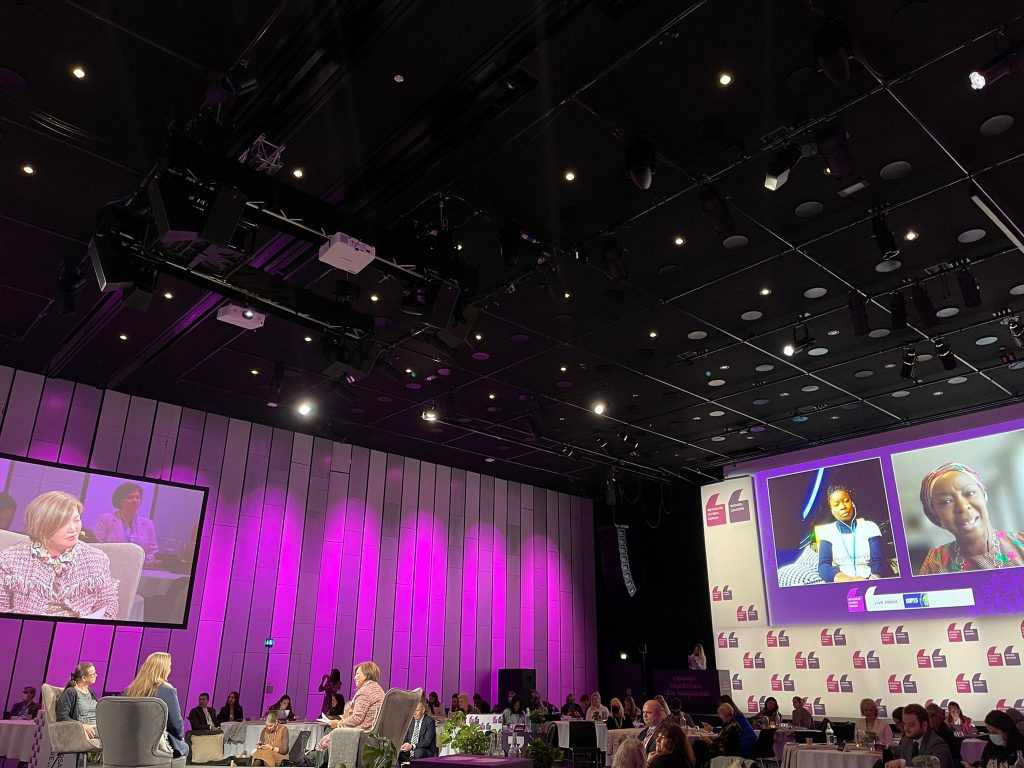Categories
I am so pleased to usher in Gender Day at the COP 26 joint session with the start of the Reykjavík Global Forum – Women Leaders, chaired by the Head of WP Leaders, distinguished Prime Minister of Iceland and honourable Speaker of Parliament.
Discussing the climate crisis through a gender lens has never been so pertinent. Gender Day affords us the opportunity to recognise, and celebrate, gender equality and the empowerment of women and girls in both climate policy and action.

Women continue to be disproportionally at risk for violence, discrimination and disenfranchisement around the world. But there is reason to hope. In “Finding the Path to Net Zero’ I thoroughly enjoyed the rich perspectives from my fellow panelists Marjut Falkstedt, Secretary General of the European Investment Bank, Sarah Riggs Amico, Executive Chairperson, Jack Cooper Holdings Corp, and Adenike Oladosu, Climate Activist; Founder, ILeadClimate in a reveling conversation moderated by Bayartsetseg Jigmiddash, State Secretary of Justice, Mongolia 1 (2012-2016), Senior Prevention Specialist, Green Climate Fund. Sharing pertinent point of views from industry, finance, agriculture and beyond, all ensuring that gender equality and women’s human rights are central to ongoing discussions.
It is clear that COP26 has brought people, the planet, and prosperity together in an inspiring and energising way.
Global leaders have presented that they understand the urgency, but there is still more work to be done in recognising the frontline challenges of health and well-being in regards to the climate crisis and leveraging local knowledge and action.
View this post on Instagram
NGOs such as my Wellbeing Foundation Africa, therefore, play a vital role in not only establishing their own mission and work but aiding vulnerable communities in adapting and understanding the effects of the climate crisis as it is interlinked with almost every aspect of life, particularly health care.
Human lives and health are being impacted in a variety of ways, from a lack of clean air, safe drinking water, nutritious food supply, and safe shelter. These challenges will only worsen if we do not act immediately. That is why WBFA will be working with our partners to enable and encourage countries affected by climate change to; protect and restore ecosystems, build defences, warning systems and resilient infrastructure and agriculture to avoid loss of homes, livelihoods and even lives.
Global political leaders need and must continue to work with NGOs to understand that inaction on climate will also set us back decades in the societal missions and advancements made by NGOs for those who are already marginalized and disproportionately affected.
Categories